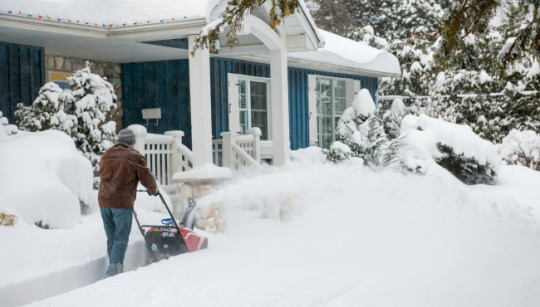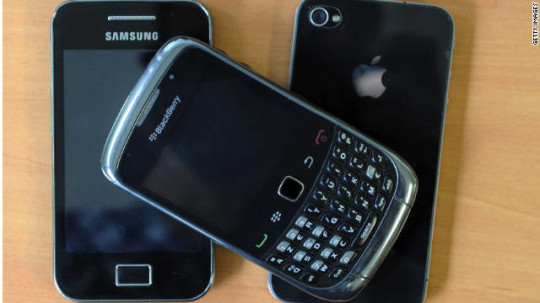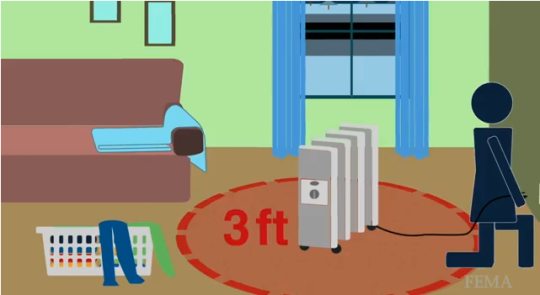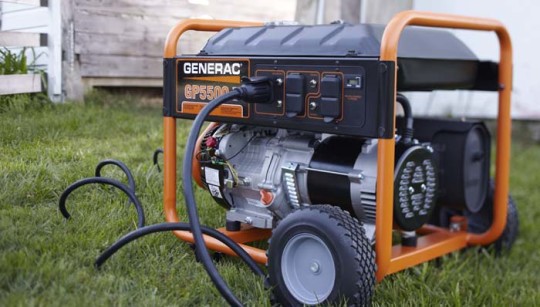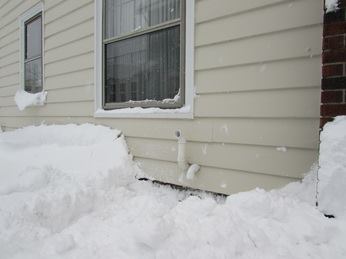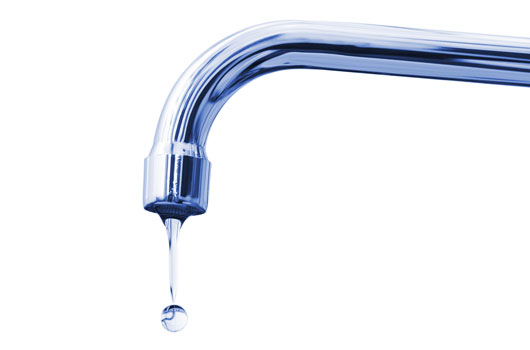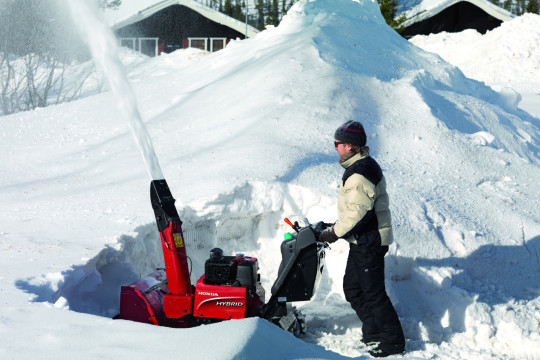Winter storms can range from a moderate snow over a few hours to a blizzard with blinding, wind-driven snow that lasts for several days. Many winter storms are accompanied by dangerously low temperatures and sometimes by strong winds, icing, sleet and freezing rain.
One of the primary concerns is the winter weather’s ability to knock out heat, power and communications services to your home or office, sometimes for days at a time. Heavy snowfall and extreme cold can immobilize both the local neighborhood and an entire region.
The National Weather Service refers to winter storms as the “Deceptive Killers” because most deaths are indirectly related to the storm. Instead, people die in traffic accidents on icy roads and of hypothermia from prolonged exposure to cold. It is important to be prepared for winter weather before, during and after it strikes.
Prevent Fires from Alternative Lighting, Heating and Cooking
Should families experience a power outage during or after the winter storm, a safer alternative is to use battery operated flashlights or lanterns instead of candles or other open flame. Never use a stove or oven as a heating source and never overload a fireplace, wood or pellet stove. Finally, always properly dispose of ashes in a metal container with a lid, outside away from the house, garage or deck. A single ash can retain heat for several days.
Portable Generator Safety during a Power Outage
- Always read and follow the manufacturer’s operating instructions before running a generator.
- Engines emit carbon monoxide. Never use a portable generator inside your home, garage, crawl space, basement or other enclosed areas. Fatal fumes can build up, that neither a fan nor open doors and windows will provide enough fresh air.
- Only use your generator outdoors, away from windows, vents or doors.
- Test battery-operated carbon monoxide alarms on every level of your home at least monthly.
- Gasoline and its vapors are extremely flammable. Turn off the portable generator and allow it to cool at least 2 minutes before refueling and always use fresh gasoline.
- Store gasoline in an approved container, in a shed or detached garage away from the home. Never store gasoline in the home or an attached garage.
- Never operate a portable generator near combustible materials.
- Plug appliances directly into the generator or use a heavy-duty, outdoor rated extension cord. Always uncoil extension cords and lay them flat in open locations since coiled cords get extremely hot and could cause a fire.
- Never plug your generator directly into your home outlet to avoid “backfeeding” which can electrocute utility workers. If you are connecting a generator into your home electrical system, have a qualified, licensed electrician install a Power Transfer Switch.
- Generators produce powerful voltage. Never operate under wet conditions and take precautions to protect your generator from exposure to rain and snow.
During and After the Storm
Clear snow from furnace, dryer vents, and hydrants. Keep outside furnace, hot water and dryer vents clear of drifting snow to prevent flue gases from backing up into the home and creating a carbon monoxide hazard. Assist firefighters by clearing a three-foot radius around fire hydrants near your home.
Prevent Freezing Pipes
Let hot and cold water faucets drip a trickle to prevent pipes from freezing, and open cupboards under sinks to let heat circulate around the pipes.
Use Caution in Cold Temps
Before tackling strenuous tasks in cold temperatures, consider your physical condition, the weather factors and the nature of the tasks. Protect yourself from frostbite and hypothermia by wearing warm, loose-fitting, lightweight clothing in several layers. Stay indoors, if possible.
Be a Good Neighbor
Check on elderly neighbors, people living alone, those with disabilities and homes with young children to see if they need extra supplies before or assistance after the storm.
For winter weather updates, visit Storm Team 8 online.
For additional Winter Storm Safety Tips, watch this Winter Safety Tips video from FEMA or go to Ready.gov.



